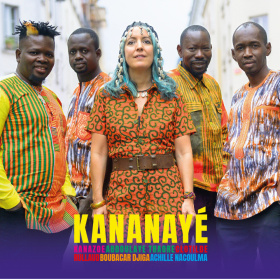MC Sugu wants to take Tanzanian govt to court
Tanzanian rapper-turned-politician Joseph Mbilinyi wants to take the Tanzanian government to court for banning his song ‘#219’.
 BASATA executive secretary Godfrey Mngereza.
BASATA executive secretary Godfrey Mngereza. Tanzanian President John Magufuli.
Tanzanian President John Magufuli.
This after the National Arts Council of Tanzania (BASATA) declared the song unfit for broadcast this week. A statement dated 19 June and signed by BASATA executive secretary Godfrey Mngereza warns Mbilinyi, whose stage name is MC Sugu, against performing and distributing the song.
“We've been receiving calls and complaints about the content of the song, especially from music stakeholders who feel the song is insulting," the statement says. "Furthermore, the musician failed to follow the due process required before releasing a song in Tanzania. BASATA will not tolerate a few artists who want to use the arts industry to incite the public and destroy the current peace and tranquillity.”
The song in question makes references to the rapper’s five-month experience in prison and the lack of freedom of speech in Tanzania. He calls himself a political prisoner and says he was convicted without sufficient evidence.
On 26 February, Mbilinyi, who is an MP representing the Mbeya Urban constituency on behalf of opposition centre-right party Chadema, was sentenced together with the party's regional secretary, Emmanuel Masonga, to five months at Ruanda Prison by the Mbeya Resident Magistrate's Court for defaming President John Magufuli.
The two were charged with linking Magufuli to a September 2017 assassination attempt on senior Chadema MP Tundu Lissu during a public rally in the Mbeya region. Mbilinyi had argued that he was not present at the December rally when the comments were made.
The release of ‘#219’ has come less than a month after Mbilinyi and Masonga were released on a Magufuli blanket pardon of 3 319 prisoners issued during Union Day celebrations on 26 April.
Mbilinyi denied officially releasing the song during a government budget debate in Parliament on Wednesday. He confirmed the song was indeed his but said he had no idea how it was leaked online.
“Every institution in Tanzania has become like the police, including BASATA,” he said. “They banned my song without first contacting me. They are used to banning music yet they have never stepped into a recording studio. We have developed this industry up to this point where musicians can earn a living through music, so they should not frustrate us. They want all of us to sing love songs yet some of us prefer addressing socio-political issues affecting society.”
Mbilinyi said his lawyers were building a case against BASATA. “I'm neither Roma Mkatoliki nor Diamond Platnumz or any other artist who has been taking BASATA’s decisions lying down. I am working with six lawyers and will be taking them to court because someone needs to remind them that one can never cage the ideas of an artist.”
Also in Parliament on Wednesday was the Deputy Minister of Information, Culture, Arts and Sports, Juliana Shonza, who dismissed Mbilinyi's version of how the song had made it online.
"The honourable member cannot claim that the song was leaked yet he has released no statement to support that,” she said. “We released a statement because we are currently in possession of the audio recording and lyrics. That aside, BASATA requires that an artist surrender their song’s lyrics for vetting before releasing it, but he didn’t do that. In fact, he is planning to shoot a video.”
The ministry has been working closely with BASATA and the Tanzania Communications Regulatory Authority (TCRA) to regulate the Tanzanian creative sector after Magufuli ordered the TCRA in December to take legal action against artists employing nudity in their videos and to enforce laws governing the media to curb moral erosion.
Listen to '#219' below:





















Commentaires
s'identifier or register to post comments